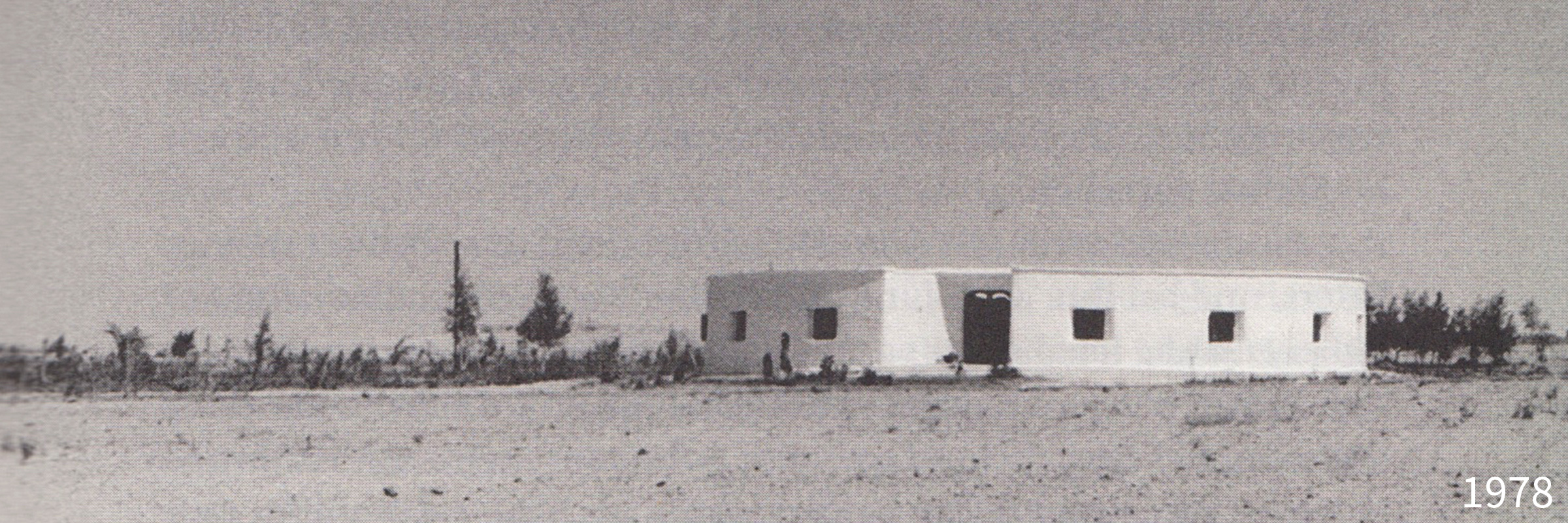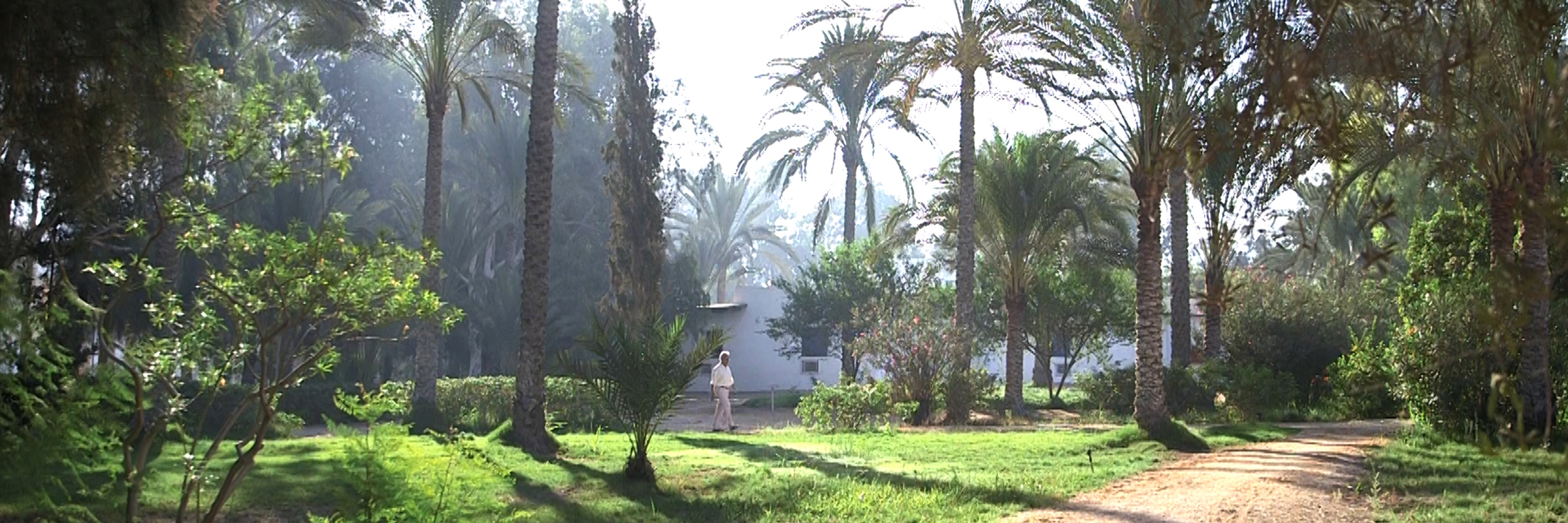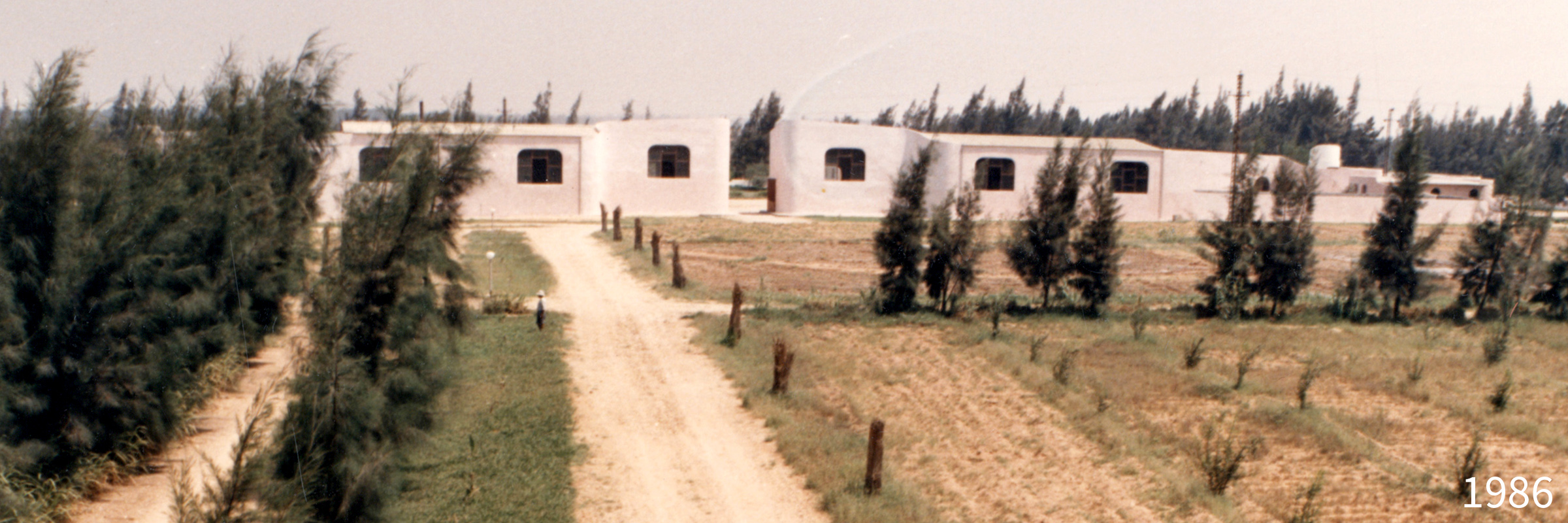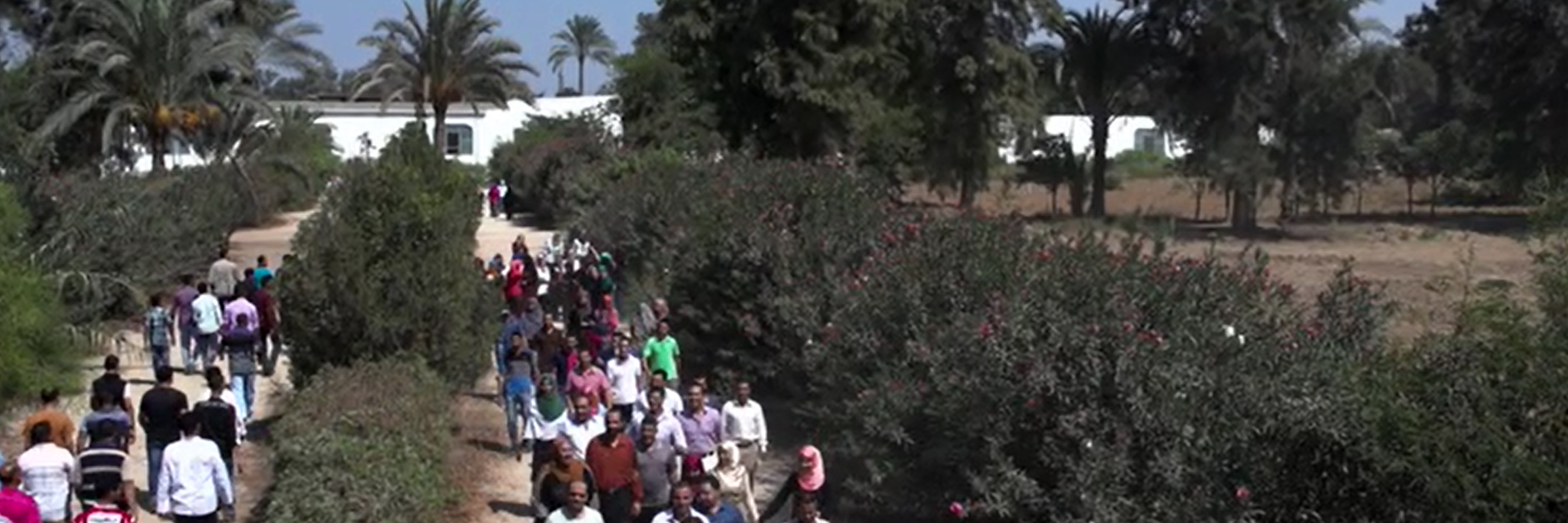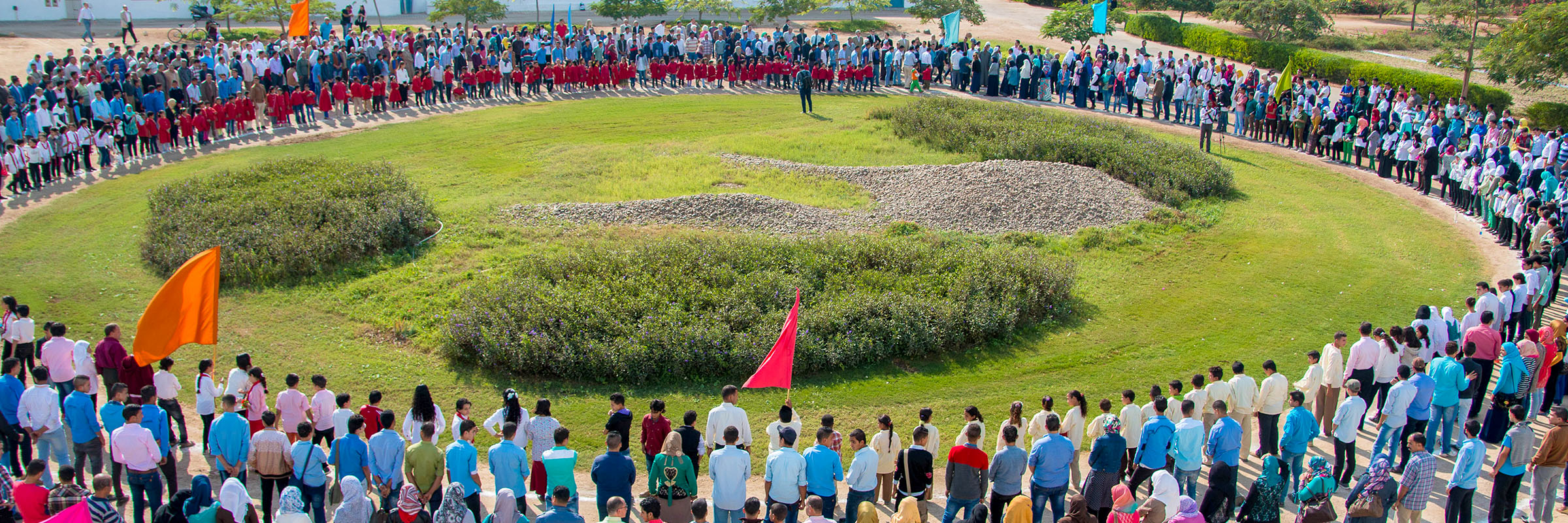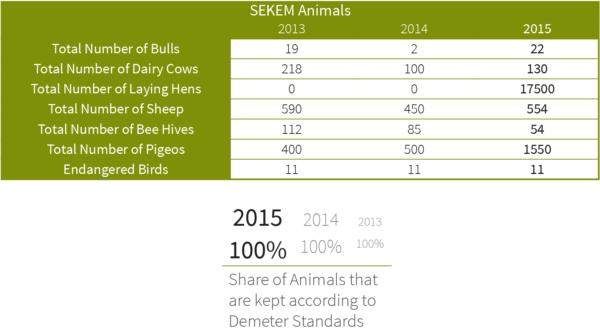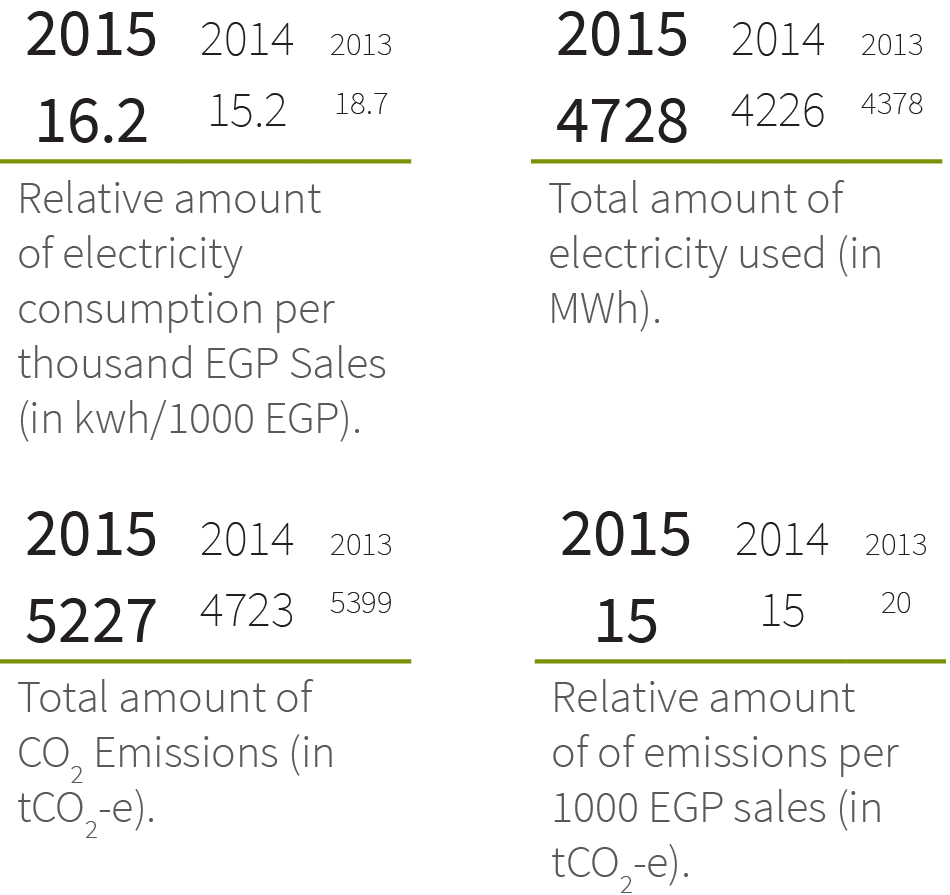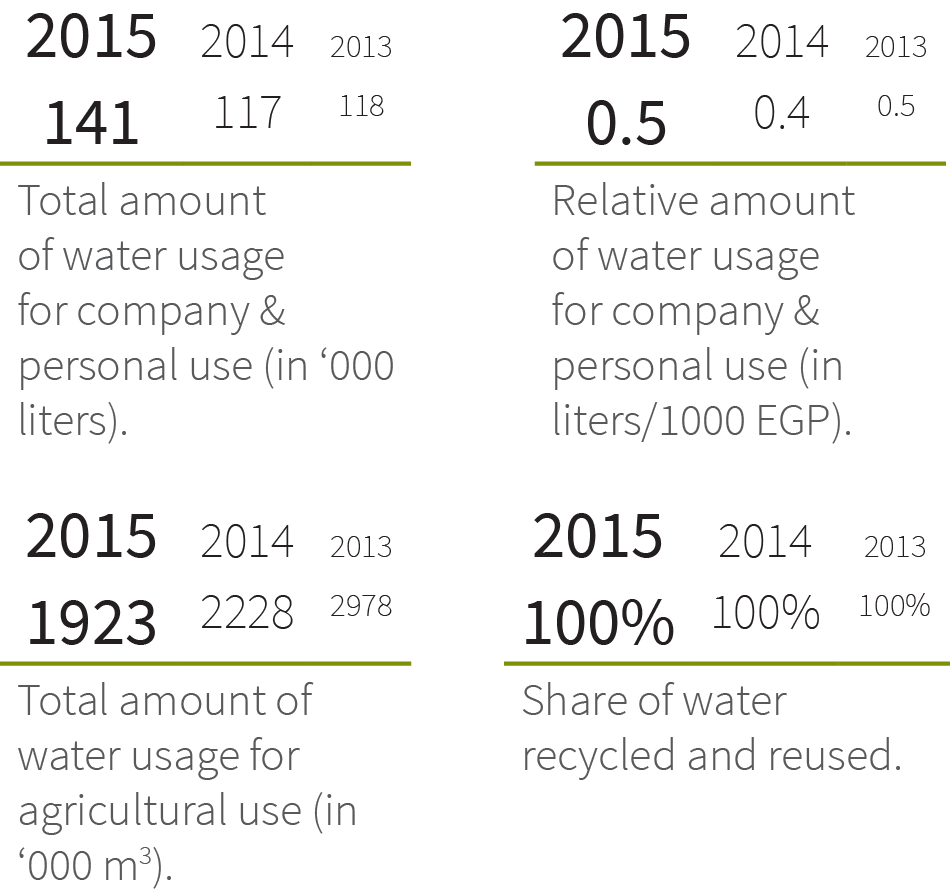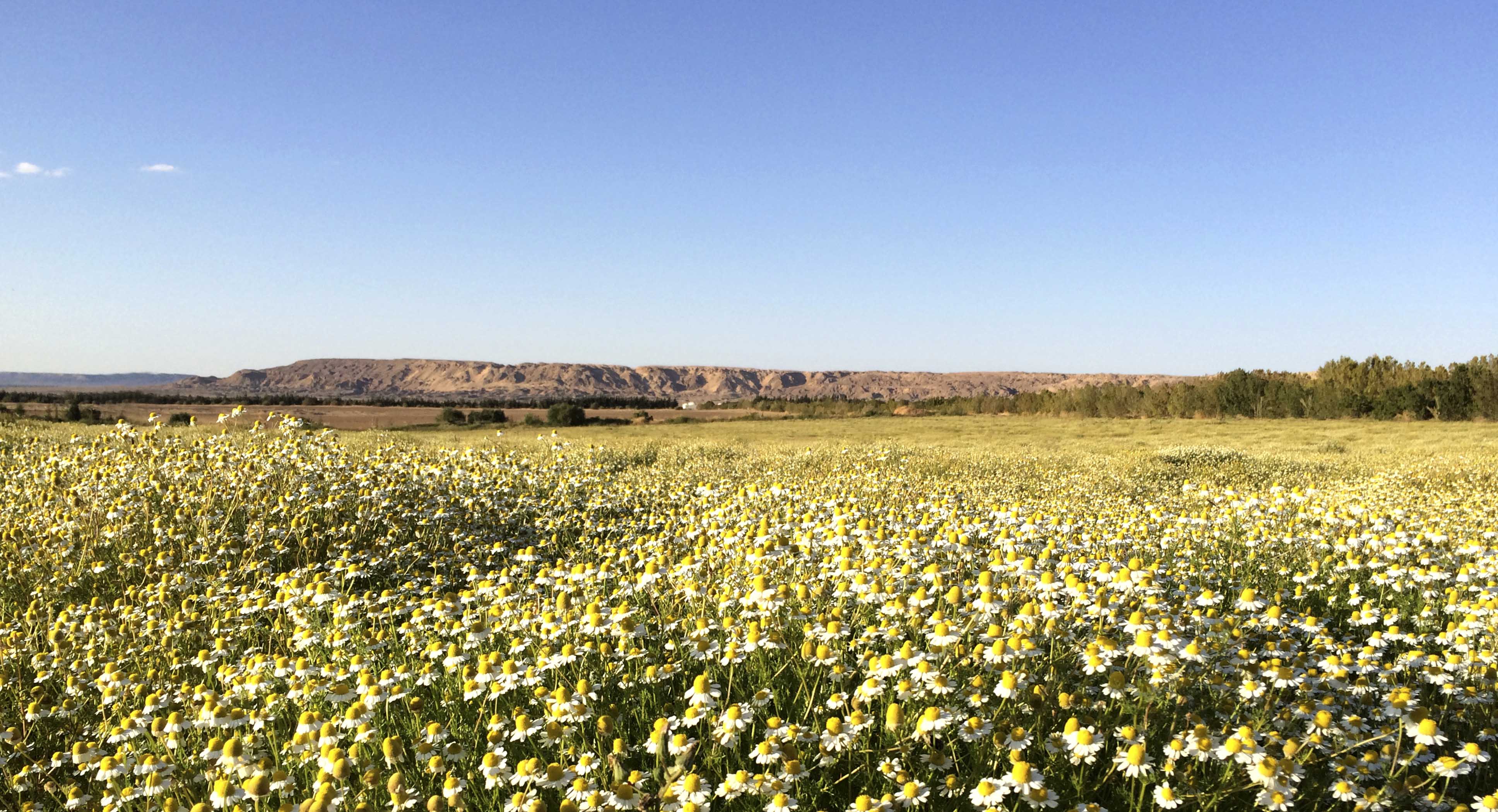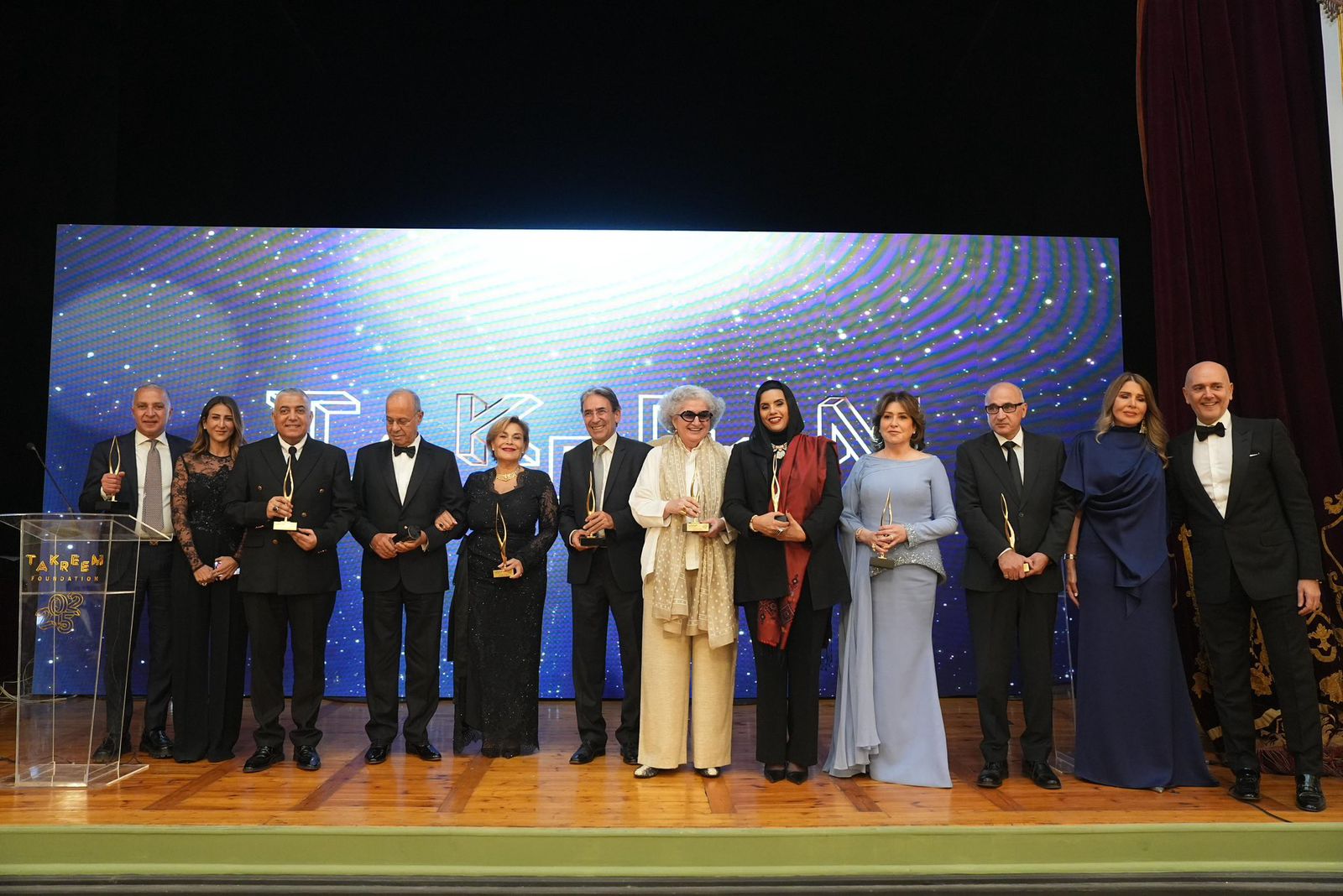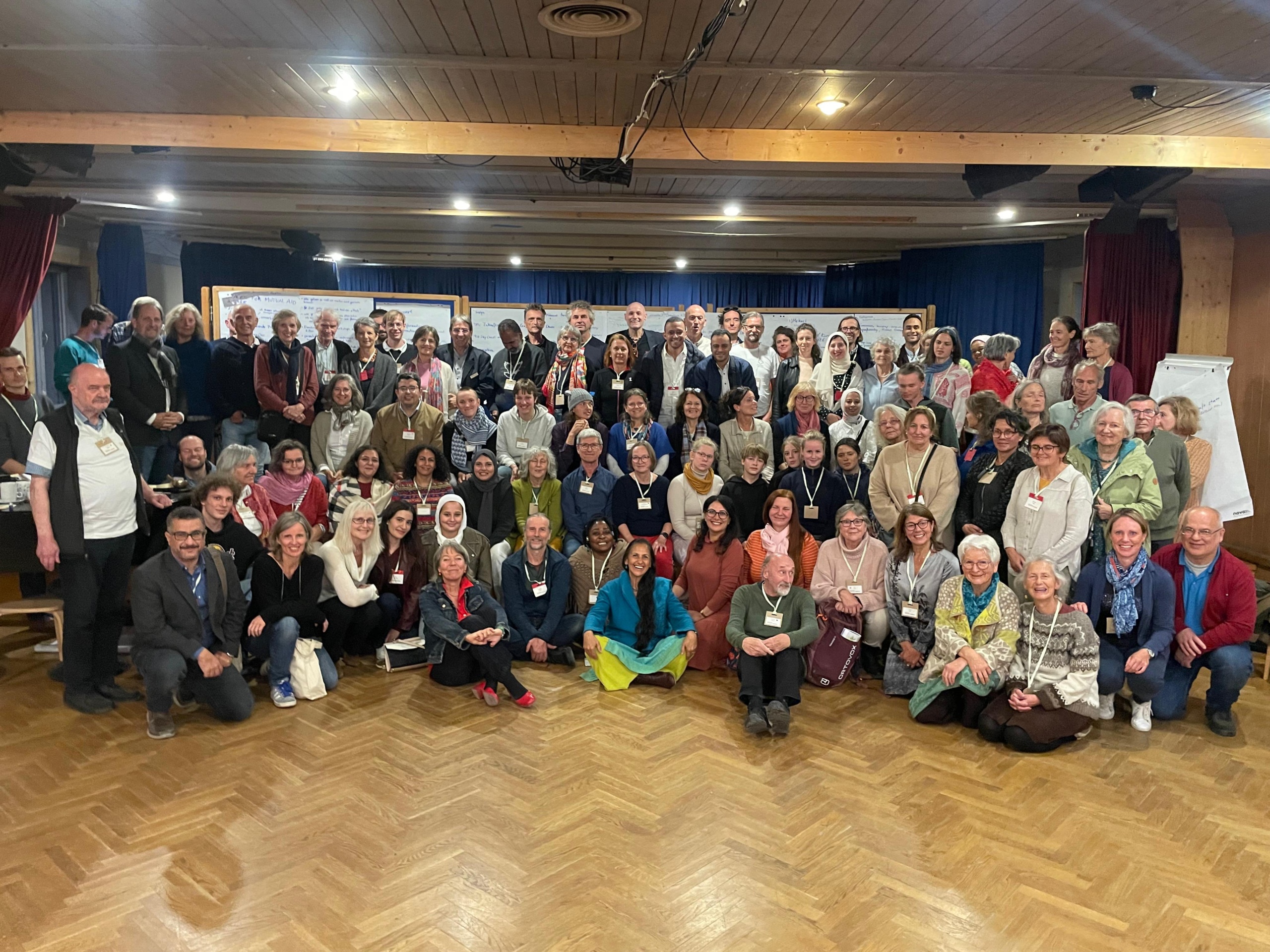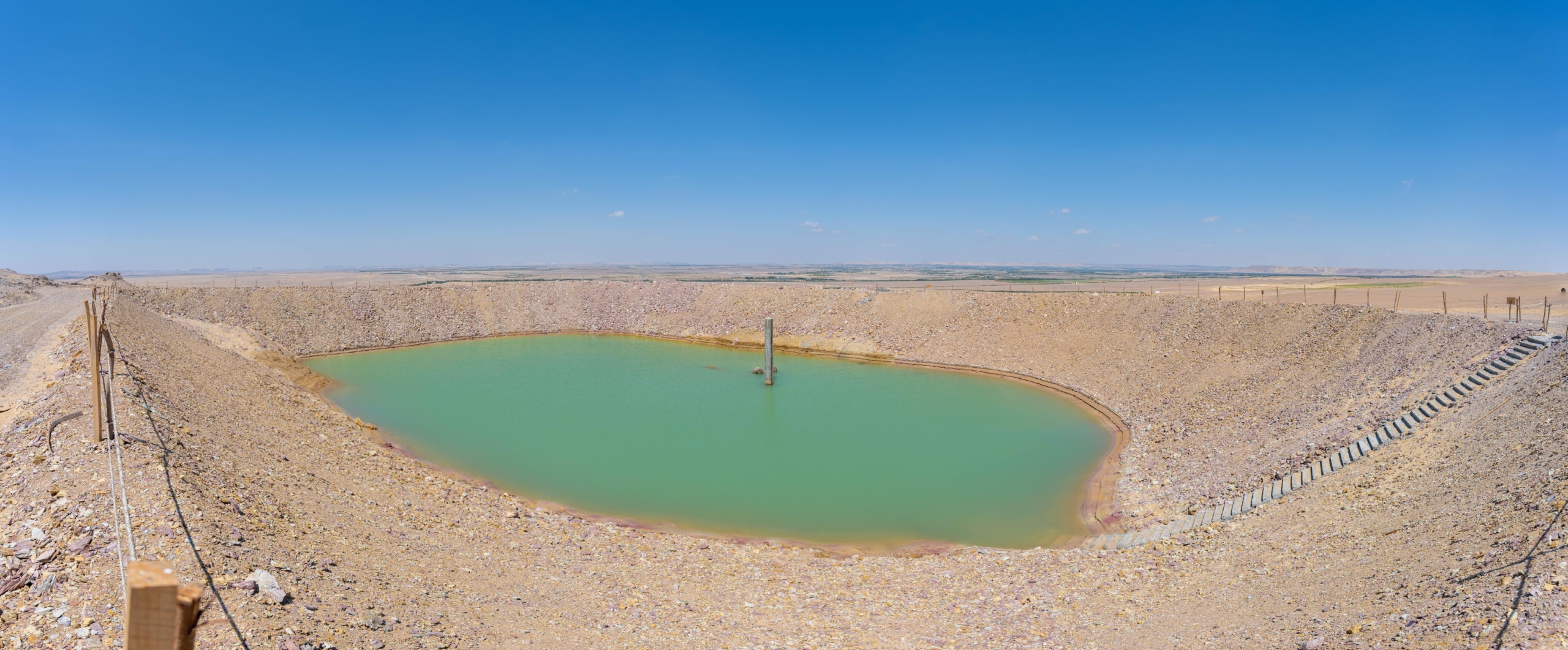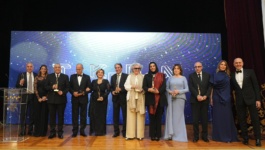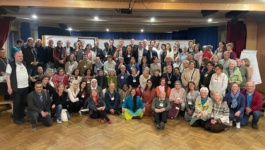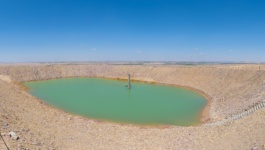Vision & Mission | History | Founders | Awards | Friends, Partners & Network | Organizational Structure | Sustainability
Sustainability Report 2015 – Ecology
“A sustainable approach to agriculture is vital to the future of Egypt and the region. We can build up the quality of soil, improve water use and build stronger community relations, but a sustainable way of financing these new models is also a priority.”
During the past 38 years SEKEM reclaimed 1628 Feddan (approx. 683 hectares) desert land to vital living soil by using Organic and Biodynamic methods. Additionally, SEKEMs contracted farmers cultivate more than 4000 Feddan (approx. 1680 hectares) all over Egypt with sustainable Biodynamic agriculture.
In a country like Egypt that consists of more than 90% desert and is living in water scarcity, sustainable land reclamation has a fundamental meaning for the future. Even though most Egyptians don’t realize, they have not enough water to secure their food supply and are accordingly depending heavily on food imports. With the fast growing population of Egypt, this requires innovative solutions right away.
In the past years, SEKEM did not reclaim additional land (according to the challenging times that Egypt went through since 2011) but could manage to keep the soil fertile. For its efforts in “revitalizing dry lands through biodynamic agriculture methods” and for combating desertification SEKEM received the Land for Life Award by the United Nations Convention to Combat Desertification in 2015.
Since 38 years, SEKEM is committed to reclaiming desert land in a sustainable way by applying Biodynamic agriculture. This means that the whole farm is seen as a living organism.
Animals take a fundamental part in a healthy farm circle and are crucial for biodynamic agriculture. In 2015 SEKEM could increase the number of animals and addressed the topic “how can we accompany the animals with dignity into the future?” at the 19th Demeter International Conference that was hosted by SEKEM. Their manure is an important ingredient in the organic compost, which SEKEM is using instead of chemical fertilizer. The so-called “black gold of the desert” is rich of micro-organisms and keeps the soil fertile. This increases the water holding capacity and the microorganisms are essential to make nutrients available to plants.
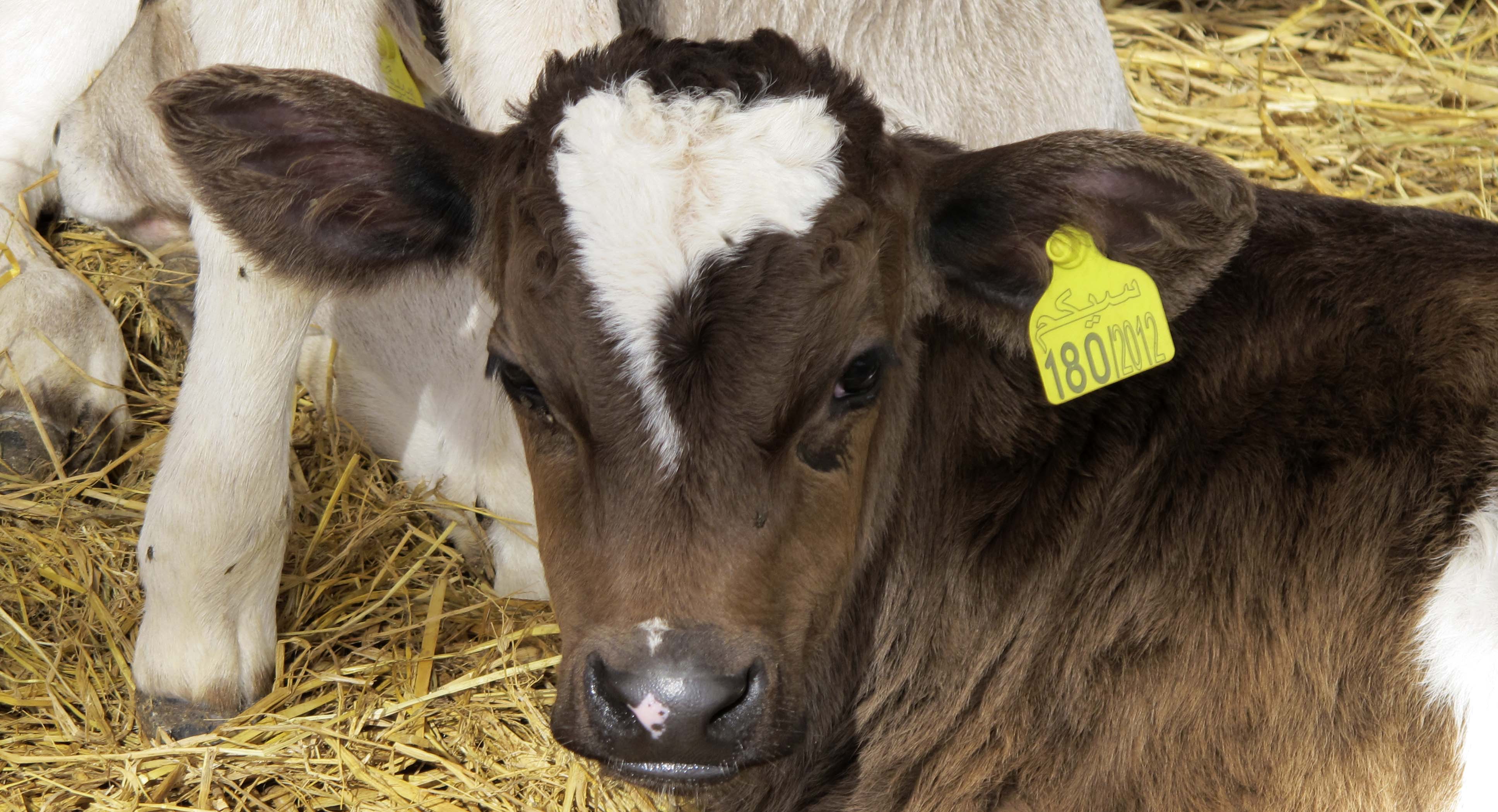
“We can start to reclaim more deserts for cultivation and the construction of plants – I am sure this is possible. More people should benefit from the same blessings as we could.”
SEKEM is strongly focusing on its water footprint as the United Nations predict that the water availability will even drop to below 500 cubic meters per year per capita in Egypt until 2025. This means that Egypt is heading to become completely water scare.
Some of the SEKEM Farms use Nile water and others groundwater, according to the area where they are located. SEKEM is putting a lot of efforts in monitoring the water consumption, especially by inspecting the well water levels to only withdraw sustainable water amounts. SEKEM could decrease the usage of water for agriculture in the past year, which is an outcome of strong maintenance efforts and infrastructure improvements.
The Power of the Egyptian Sun
Not only the conscious dealing with water is important. Based on the Biodynamic approach of cultivation, SEKEM also constantly monitors its impact on air and energy. Hence, SEKEM fosters the implementation of renewable energies. In 2015, first successes could be achieved. On SEKEMs Farm in Wahat El Bahareya the so far largest single solar-water pump was installed in 2015. The photovoltaic panels replace a diesel generator and are able to irrigate an area of 60 feddan (about 25 hectares) of date palms.
To develop and monitor all ecological practice SEKEM engages a whole team that is committed to researches and studies on different ecological and agricultural topics: SEKEMs Department for Sustainable Development. One important research that started in 2015 has been done in cooperation with the German University of Hohenheim and with the support of SEKEMs German partner company Davert. The currently very popular so-called “functional superfoods” Chia and Quinoa have been cultivated in SEKEM with a special focus on water management. Both crops are dry- and salt-tolerant and seem to be predestinated for desert farming.
Additionally, various conferences and events took place in SEKEM or have been attended by SEKEM representatives to create awareness and enhance the current agricultural practices (for more details, see Societal Life).
“Chia and Quinoa may be very useful to Egypt’s agriculture as they require only small water amounts and in the same time increase the income of the local farmers by exporting them to Europe where they are high requested at the moment.”
Organic Farming, the “Glo-cal Solution”
Although SEKEM did not increase the reclaimed land in the past year another important outcome can be seen. Mohamed Berry, a young man that went already to SEKEM School, worked later on different SEKEM Farms and was engaged to various ecological projects, says: “I am convinced that organic farming is our best chance to tackle many of the global and local challenges we are facing nowadays. I therefore call it the ‘Glo-cal’ solution, a combination of the two terms global and local. It is crucial to always consider both.” The fact that people become aware of the ecological challenges that Egypt is facing will help to reclaim more deserts for the future and spread the idea of Organic and Biodynamic agriculture approaches.
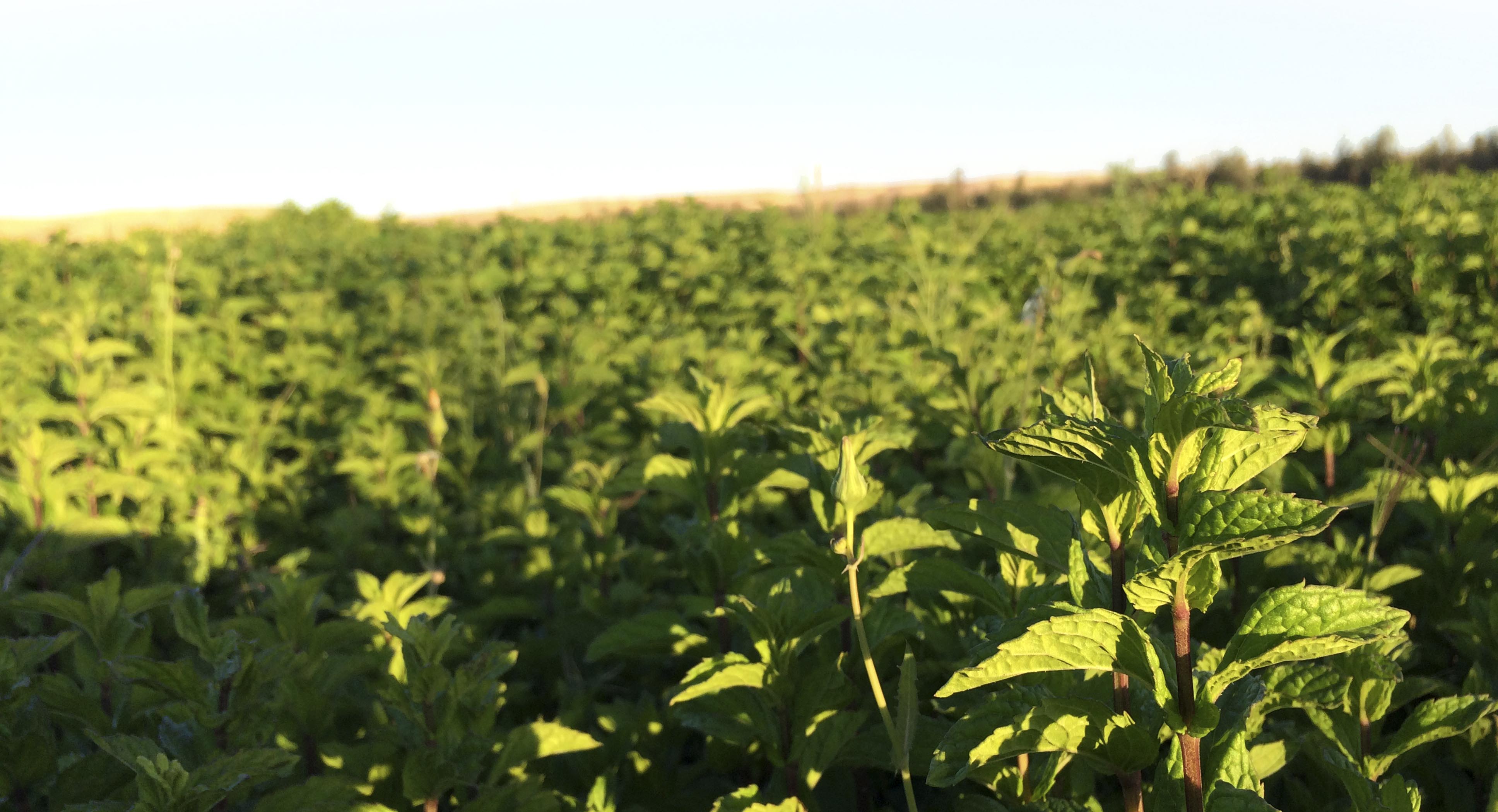
Economy 2015 | Societal Life 2015 | Cultural Life 2015 | Ecology 2015
Download SEKEMs Annual Report on Sustainable Development 2015 now
حمِّل الآن تقرير سيكم السنوي عن التنمية المستدامة لعام 2015
Explore SEKEMs previous sustainability reports
You have a question, a comment or feedback about our report? Send us a message now!

